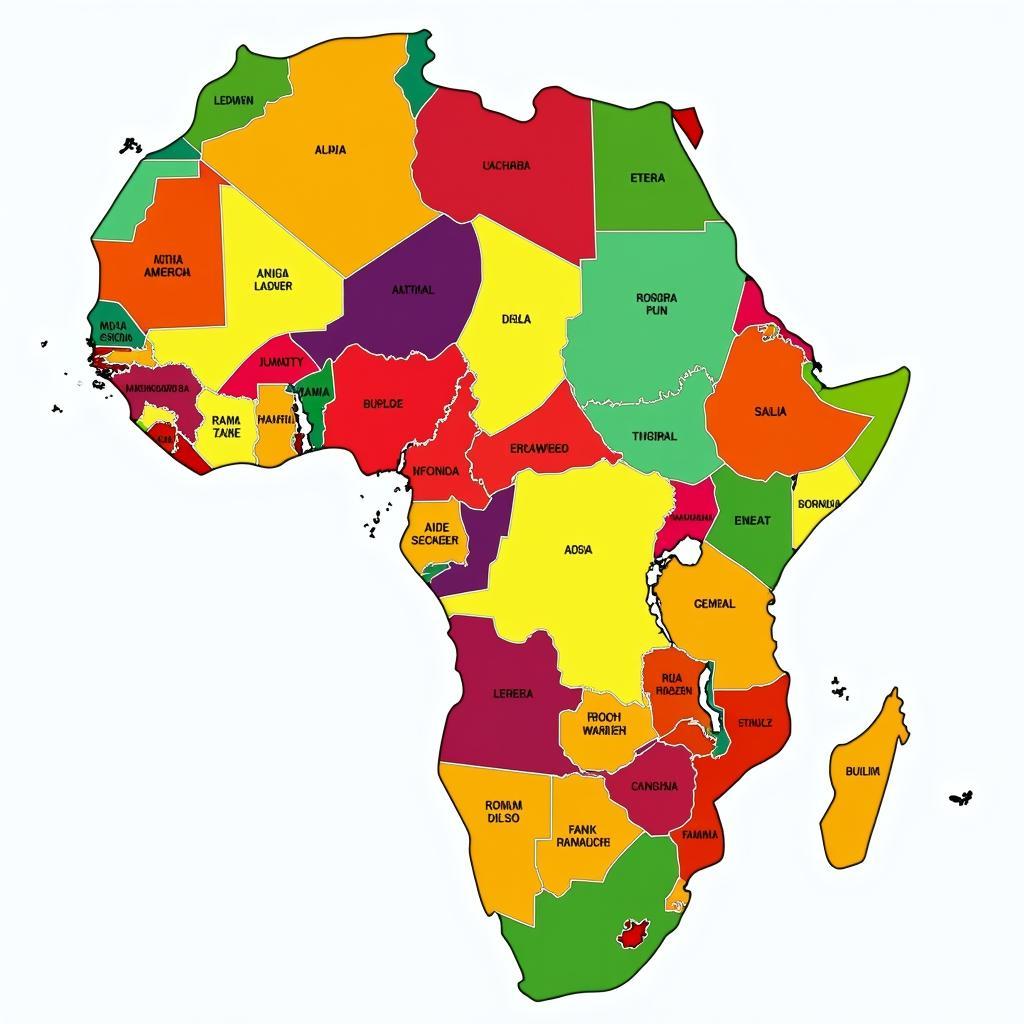The African Continental Free Trade Area: A Game-Changer for Africa’s GDP
The African Continental Free Trade Area (AfCFTA) is a groundbreaking initiative aimed at creating a single market for goods and services across the African continent. It promises to be a game-changer for Africa’s economic landscape, boosting intra-African trade and propelling the continent towards sustainable growth. This article delves into the potential of the AfCFTA to significantly impact Africa’s GDP and unravels the transformative forces it brings to the region.
A Giant Leap for Pan-African Trade
The AfCFTA, launched in 2019, aims to eliminate tariffs on 90% of goods traded among its member states. This ambitious vision is intended to facilitate free movement of goods, services, people, and capital across borders, unlocking a vast potential for economic integration.
The AfCFTA’s impact on Africa’s GDP is projected to be significant:
- Increased Intra-African Trade: One of the most anticipated benefits is the projected increase in intra-African trade. Currently, only about 16% of Africa’s trade is within the continent. The AfCFTA aims to raise this figure to at least 52% by 2030, potentially adding $450 billion to the continent’s GDP.
- Boost to Manufacturing: The AfCFTA is expected to stimulate industrialization and manufacturing across Africa. By creating a larger market for goods, the agreement will incentivize companies to invest in production facilities, leading to job creation and economic growth.
- Attracting Foreign Direct Investment: A more integrated and stable economic environment can attract foreign direct investment (FDI) into Africa. The AfCFTA’s potential to unlock a significant market will make the continent more attractive to investors, boosting economic activity and development.
- Diversifying Economies: The AfCFTA can help countries diversify their economies, reducing their dependence on single commodities. By promoting trade in value-added products, it can foster a more resilient and sustainable economic landscape.
Challenges and Opportunities
While the AfCFTA holds immense potential, there are challenges to overcome:
- Infrastructure Development: Africa’s infrastructure needs to be modernized and expanded to support the increased trade facilitated by the AfCFTA. Investments in transportation, logistics, and digital connectivity are essential.
- Non-Tariff Barriers: Reducing non-tariff barriers, such as cumbersome customs procedures, complex regulations, and bureaucratic hurdles, will be crucial for smooth trade flow.
- Harmonization of Policies: Harmonizing national policies on trade, investment, and competition across member states is crucial for a successful AfCFTA.
To overcome these challenges:
- Stronger Regional Cooperation: Collaboration among African countries is essential to build the necessary infrastructure and harmonize policies.
- Investment in Human Capital: Developing a skilled workforce through education and training programs is vital to support a more industrialized and diversified economy.
- Technological Adoption: Embracing digital technologies can streamline trade processes, improve efficiency, and enhance competitiveness.
The AfCFTA’s Impact on Specific Sectors
The AfCFTA is expected to have a significant impact on various sectors:
Agriculture: The AfCFTA can boost agricultural production and trade, creating new opportunities for African farmers and businesses. It can promote the development of value chains and enhance food security across the continent.
Manufacturing: The AfCFTA is expected to create a more favorable environment for manufacturing companies, attracting investment and stimulating job creation. It can also foster the development of regional value chains, promoting industrialization and economic growth.
Tourism: The AfCFTA can promote tourism growth by facilitating easier travel and access for tourists within Africa. It can also foster collaboration among countries to develop new tourism products and itineraries.
Services: The AfCFTA can drive growth in services sectors like finance, transportation, and technology, creating new opportunities for African businesses and professionals.
A Promising Future for Africa
The AfCFTA is a transformational initiative that has the potential to revolutionize Africa’s economic landscape. By boosting intra-African trade, promoting industrialization, and attracting FDI, the AfCFTA can unlock significant growth opportunities for the continent.
Despite the challenges, the AfCFTA is poised to unlock a new era of prosperity for Africa.
It is a beacon of hope, demonstrating Africa’s collective commitment to a brighter future for its people.
FAQs
Q: What are the key benefits of the AfCFTA?
A: The AfCFTA offers numerous benefits, including increased intra-African trade, economic diversification, job creation, and a more attractive investment environment.
Q: How can the AfCFTA contribute to Africa’s economic development?
A: The AfCFTA can propel Africa’s economic development by promoting trade, investment, and industrialization, leading to increased economic activity, job creation, and poverty reduction.
Q: What are the challenges to implementing the AfCFTA successfully?
A: Key challenges include infrastructure development, non-tariff barriers, and harmonization of policies across member states.
Q: How can African countries overcome the challenges to the AfCFTA?
A: Stronger regional cooperation, investment in human capital, and technological adoption are vital for successful implementation.
Q: What are the key sectors that are likely to benefit from the AfCFTA?
A: The AfCFTA is expected to have a significant impact on sectors like agriculture, manufacturing, tourism, and services.


